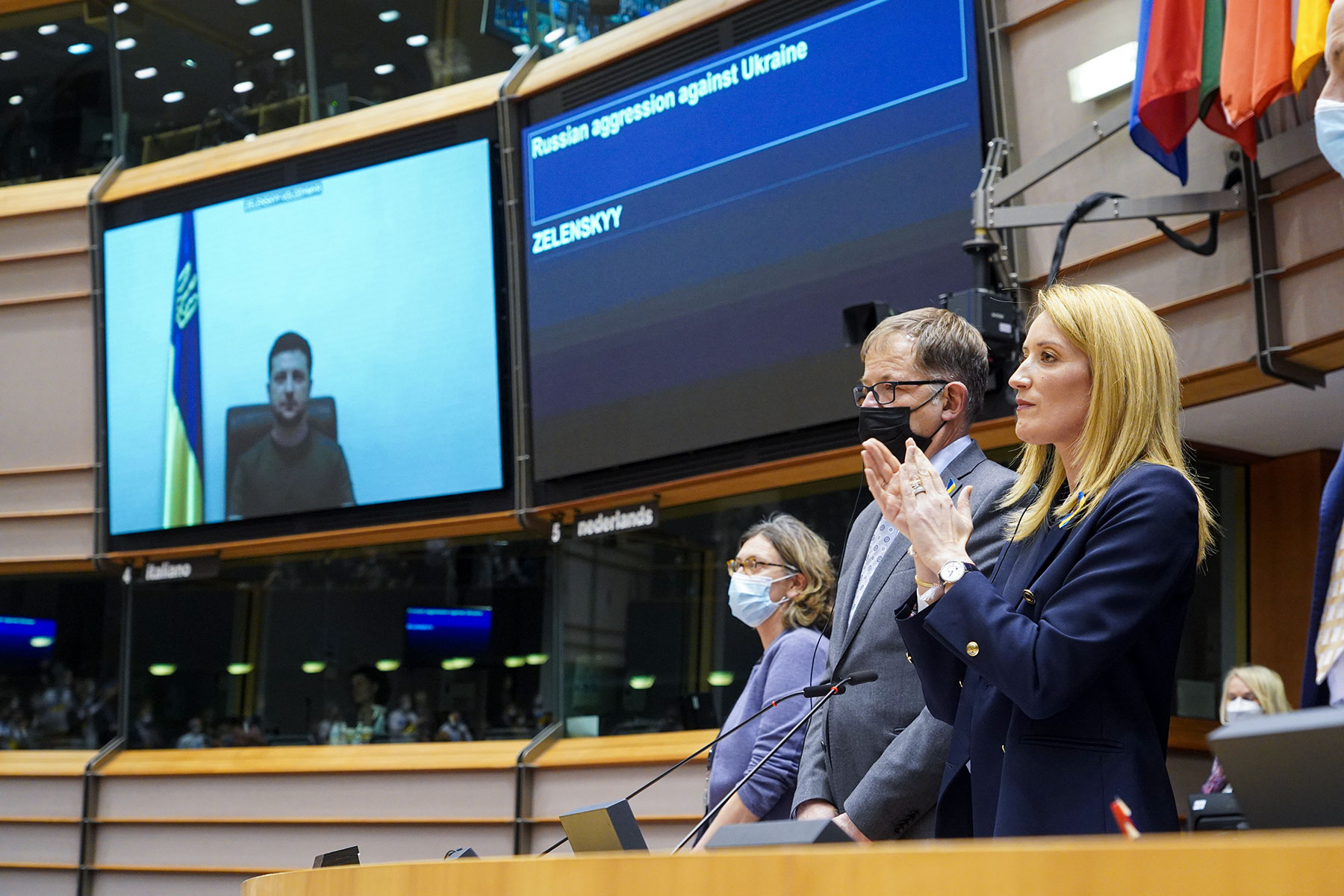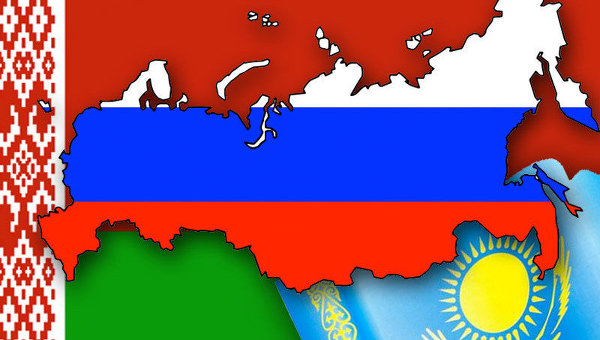"There is no neutrality between the fire and the fire brigade." Russia's invasion of Ukraine has sent shockwaves around the globe -- as well as ushered in an understanding in Europe that that policy of not provoking an aggressor does not guarantee security.
This is a second article in the analytical series dealing with a long-term paradigm-changing transformation in the European (and global) political landscape driven by Russia's war in Ukraine by Amanda-Jane Eddleston
The first article in the series is available here: War in Ukraine has rewritten Germany’s political ideology.
"There is no neutrality between the fire and the fire brigade"
"There is no neutrality between the fire and the fire brigade.’ These were the words spoken by the President of the European Council, Charles Michel, as he addressed the emergency plenary session of the European Parliament in Brussels on Tuesday. Within the last week, this sentiment has been gathering force and has galvanized the leaders and lawmakers of European countries. In a defining moment in history, the call-to-arms sent out by Ukrainian President Volodymyr Zelenskyy as he faces down the Russian assault of his country has ignited a solidarity that has swept the world like wildfire, and, spurred by the clarion calls of their citizens, heads of state have responded. The President of the European Parliament, The President of the European Council, The President of the European Commission, The High Representative For The European Union Of Foreign Affairs, and President Zelenskyy all addressed the European Parliament on Tuesday [1 March 2022], and the message that was repeated time and again was that decisive action must be taken in order to uphold the principles of freedom, democracy, and an internationally recognized rule of law. Afterward, the Parliament voted to condemn Russia’s attack on Ukraine and to accept Ukraine’s application to become an EU member, adopting the resolution by an overwhelming majority, with 637 in favor, 13 against, and 26 choosing to abstain. Outside the Parliament building, interspersed blue and yellow Ukrainian flags mingled with the blue background and yellow stars of the European Union flags. Later that day, nearly the entire delegation of officials at the United Nations Human Rights Council in Geneva walked out of the chamber while a prerecorded speech from Russian Foreign Minister Lavrov played. The handful who chose to remain barely moved as the crowd of more than 100 diplomats from nearly 40 countries filed through the doors. Ukrainian ambassador Yevheniia Filipenko declared the protest ‘a remarkable show of support for Ukrainians who are fighting for their independence. Likewise, on Tuesday, The Swedish Minister for Foreign Affairs, Ann Linde, posted on Twitter that Sweden was contributing another 500 million SEK (€47 million) in humanitarian support to Ukraine, following the 120 million SEK that has already been promised the week earlier. She also mentioned that the country would be proposing new EU measures directed at curbing Russian oligarchs, and said that she was meeting later in the day with her Baltic counterparts to discuss further actions which could be taken to support Ukraine. Concurrently on Tuesday, the Swedish Prime Minister Magdalena Andersson revealed the government’s plan to increase the nation's military capabilities, insisting that the increase in the continent’s ‘general threat level’ necessitated such action. Speaking during a televised address to the nation, the Prime Minister emphasized that ‘Sweden's defensive capabilities need to be strengthened, the rearmament needs to be brought forward.’ These moves follow the announcement on Sunday that the country would send 5,000 anti-tank weapons and 10,000 helmets and body armor to Ukraine, thus breaking Sweden’s 80-year policy of not supplying armaments to areas of conflict, a strategic stance of neutrality that the Swedes have maintained for nearly two centuries, including through the two world wars. Prime Minister Andersson defended the decision, proclaiming that her nation’s security"is best served by us supporting Ukraine’s ability to defend itself against Russia."Recent years have seen Sweden respond to Russia’s escalating aggression by reintroducing mandatory military service in 2017 and by increasing its defense spending until 2025 by €2.5 billion ($2.8 billion). The Prime Minister underscored the historical parallels of this moment by noting that the last time Sweden supplied weapons to a conflict area was when the Soviet Union attacked Finland in 1939. Finland itself also marked the 1st of March as a significant date, as the national Parliament debated a citizens’ petition to hold a referendum on the country joining NATO. Though Finland joined the EU in 1995, it has chosen to not seek membership of the defense alliance during the decades in light of the country’s enduring stance of not engaging in any international affairs which could be seen by Russia as deliberately provocative. Neutrality and military non-alignment has defined Finland’s foreign policy to such an extent that its government even chose to not participate in the post-WWII Marshall Plan, denying the land much-needed aid in rebuilding following the war. It is a position which the country has held since 1956 when it ceased leasing a naval base in its southern territory to the Soviet Union. Now, however, in light of the war Russia is waging on Ukraine, a 53% majority of Finns have stated that they are in favor of joining NATO, according to a poll which was published on Monday. The petition demanding the referendum managed to collect the 50,000 signatures necessary for official submission in less than a week. Importantly, the percentage of Finns agreeing to join NATO increases from 53% to an overwhelming 66% if neighboring country Sweden were to also seek membership. This parliamentary debate in Helsinki came a day after Finland made the announcement that it, too, would supply armaments to Ukraine (items which included assault rifles, rocket launchers, and anti-tank weapons), breaking their decades-long commitment to neutrality. Prime Minister Sanna Marin labeled the decision as "historic."
"Finland staunchly supports Ukrainian independence and sovereignty," she declared on Monday.Similar moves also occurred in Switzerland this week, when the resolutely-neutral country, with some of the tightest privacy laws in the banking industry, fully endorsed the entirety of the EU’s economic sanctions plan which the bloc has adopted against Russia. Ignazio Cassis, President of the Swiss Confederation, informed the assembled press corps that the government was ‘taking this step with conviction.’ The Swiss Minister of Justice also revealed that several Russian oligarchs with ties to the Kremlin were "immediately banned from entering Switzerland," while the country closed its airspace to all Russian flights, echoing the policy adopted by the EU a day earlier.
"Neutrality is not indifference," President Cassis affirmed.
A sea change for European politics
These developments by themselves would amount to a near revolutionary sea change for the European continent. Yet they all follow the stunning declaration on Saturday that Germany, having faced weeks of censure and recriminations from fellow EU members, would reverse its own unbending foreign policy of conflict avoidance, with Chancellor Olaf Scholz pledging to deploy 500 Stinger surface-to-air missiles and 1,000 anti-tank weapons to Ukraine’s frontlines. Berlin also removed its blockade of other EU nations sending German-originated weapons, allowing Estonia to finally dispatch its howitzers to Ukraine. The following day, Scholz announced that the government had committed €100 billion ($113 billion) to a special fund for its armed forces and had simultaneously pledged to increase its defense spending to over 2 percent of the GDP. In a special session of the German Parliament on Sunday, Foreign Minister Annalena Baerbock declared it necessary for the government "to entirely rethink the foundations of our foreign policy." Germany has refrained from heavily investing in its military and from engaging in active conflicts as it has worked through its trauma following the militarization of the Third Reich and subsequent devastation of the Second World War. Confronted by the renewed outbreak of war on European soil, however, the country has overcome the haunting specter of its past, and, against the backdrop of more than 100,000 demonstrators marching for peace before the Brandenburg Gate in Berlin, has reversed its policy in a show of resolute solidarity with Ukraine. While addressing the European Parliament on Tuesday, Josep Borell, the High Representative of the European Union for Foreign Affairs and Security Policy, heralded the end of neutrality as a crucial measure in confronting the outbreak of the war on Ukrainian soil. "We are working in the international arena to build a coalition to condemn Russia in the UN," he announced, continuing that there would be "no abstentions." "Nobody," he avowed, "can look the other way." Across the Atlantic, 1 March concluded with President Joe Biden delivering the annual State of the Union address to the American nation. Standing before the assembled members of Congress, many of whom were dressed in blue and yellow and holding Ukrainian flags, President Biden announced that they were meeting that evening"with an unwavering resolve that freedom will always triumph over tyranny."
Introducing the Ukrainian ambassador to the US, the President called for the Congress members to rise. "Let each of us stand and send an unmistakable signal to the world," he declared. "Let us continue to draw inspiration from the iron will of the Ukrainian people. We stand with you."
Amanda-Jane Eddleston is a research editor and lecturer based in Hessen, Germany. She holds degrees in Business Administration and in International Relations and has worked for The Office of the Staff Judge Advocate at the Military Airlift Command for the United States Air Forces in Europe.
Read More:
- “Finlandization” was malignant for Finland and might be even worse for Ukraine
- War in Ukraine has rewritten Germany’s political ideology
- A “Stockholm syndrome” with long roots: experts explain how to counter Russian influence in Germany
- Demands to sanction Putin’s German agents of influence as Chancellor Scholtz visits Ukraine
- Germany exports dual-use products to Russia despite EU sanctions, beefing up Russian military
- German security assistance to Ukraine perpetually on hold
- Why does Germany refuse to export arms to Ukraine?



![Linas Linkevicius: A [Russian] T-90 tank in Ukraine isn’t just a "vehicle". A lie is not an alternative point of view. Propaganda is not a legitimate form of public diplomacy. (Image: eu2013.lt)](https://euromaidanpress.com/wp-content/uploads/2015/09/b1b0ccb037ba242a8e825f211c3517ea-800x2.jpg)

